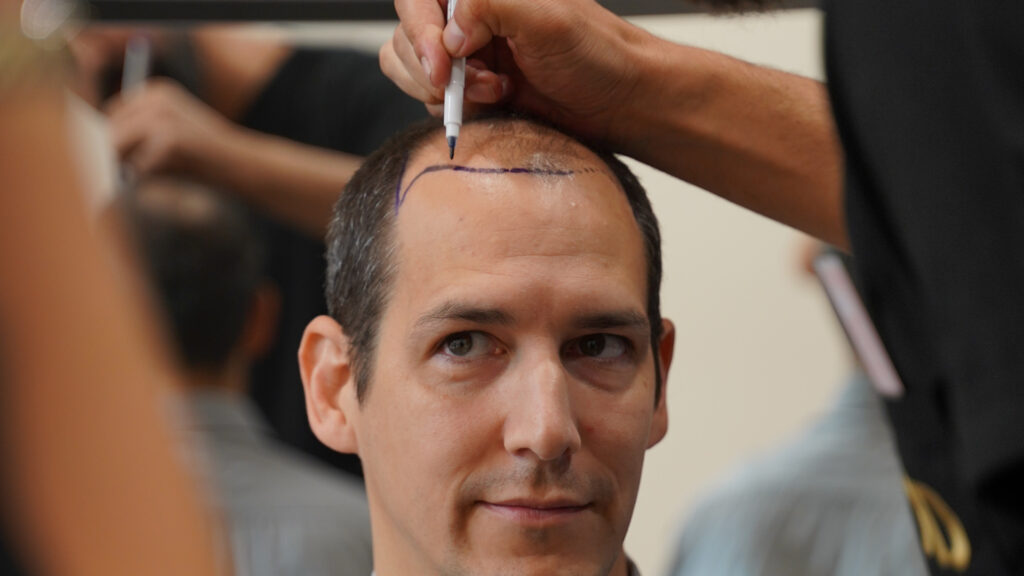Sleeve gastrectomy and gastric bypass are surgical procedures specifically designed for weight loss. These are typically recommended for individuals who are severely or morbidly obese. The general eligibility criteria often include a Body Mass Index (BMI) greater than 40 kg/m². In some cases, a BMI greater than 35 kg/m² may also be acceptable if the individual has obesity-related comorbidities such as diabetes, high blood pressure, sleep apnea, and osteoarthritis. These surgeries aim to limit food intake or interrupt the digestive process to facilitate substantial weight loss. They are usually considered options of last resort after lifestyle changes and medications have failed to achieve the desired weight loss outcomes.
There are various types of bariatric surgeries designed to treat severe or morbid obesity. Among the options are biliopancreatic bypass and gastric banding. However, the most commonly performed procedures are sleeve gastrectomy and gastric bypass. These surgeries aim to either restrict food intake or alter the digestive process to achieve significant weight loss. They are usually recommended when other interventions such as lifestyle changes and medications, have not yielded sufficient results. The choice between these surgeries is often based on individual health conditions, the presence of comorbidities, and specific weight loss goals.

Sleeve gastrectomy and gastric bypass are both effective surgical procedures for achieving long-term weight loss and improving obesity-related comorbidities. Patients who undergo these surgeries can expect to lose an average of 50% to 70% of their excess weight within the first two years after the procedure.
Learn about the advantages and disadvantages of sleeve and bypass procedures to determine which one is best for you.
How to choose: bypass or sleeve?
What is bypass surgery?
Gastric bypass is a weight loss surgery that involves creating a small pouch of stomach. This pouch is then attached directly to the small intestine, bypassing a large portion of the stomach and small intestine. This procedure reduces the stomach capacity, limiting the amount of food a person can eat at one time. In addition, it also reduces the absorption of calories and nutrients through the intestine, which helps to reduce the amount of calories absorbed by the body.

The procedure lasts between 2.5 and 4 hours and usually requires between 4 and 6 days of hospitalisation. Medical follow-up after gastric bypass surgery is essential to ensure satisfactory weight loss and prevent long-term complications. After the procedure, patients must follow a strict diet designed to promote recovery and support weight loss. This diet usually consists of eating liquid or semi-liquid foods at first, before gradually switching to solid foods.
Patients should also engage in regular physical activity to maintain their weight loss over the long term. Doctors generally recommend starting with light activities such as walking and gradually increasing exercise intensity over time.
After gastric bypass surgery, regular medical follow-up is also important to monitor the patient’s health and prevent any risk of deficiency. Supplementation is often essential to help prevent nutrient deficiencies and long-term complications.

What is sleeve gastrectomy?
Sleeve gastrectomy is a weight loss surgery that involves reducing the stomach size. During the procedure, the surgeon removes a large portion of the stomach, about 2/3 of it, giving it a tubular or “sleeve” shape. This reduction in the stomach size decreases the amount of food the patient can consume at once, which helps limit caloric intake and induce weight loss.
The procedure takes between 1 and 2 hours and requires 3 to 5 days of hospitalisation. After the procedure, patients must follow a strict diet and regular exercise program to support their weight loss. Regular medical follow-up is essential to monitor patients’ long-term health and success rate. Meals should be divided into small portions throughout the day to avoid overloading the stomach and facilitate digestion. Nevertheless, the follow-up remains less constraining after a sleeve than a bypass.
What impacts on weight loss?
After sleeve surgery
Stomach size reduction after sleeve surgery is designed to limit the amount of food the patient can consume at one time, leading to a reduction in caloric intake and weight loss. Weight loss results vary from patient to patient, but generally, patients can expect to lose about 45-65% of excess weight within two years of surgery. Patients may also see improvement or resolution of specific obesity-related comorbidities, such as diabetes, high blood pressure and cardiovascular disease.

After bypass surgery
After gastric bypass, patients can expect to lose about 70-75% of excess weight %. As with sleeve surgery, weight loss is influenced by the patient’s lifestyle changes, including their ability to adopt a healthy diet and regular physical activity. To achieve and maintain their long-term weight loss, patients must follow the medical team’s advice.

Side effects of sleeve and bypass surgery
Side effects after sleeve
As with any surgical procedure, sleeve surgery can have potential side effects, although most are temporary and will disappear over time. Temporary hair loss may occur in the months following surgery due to rapid weight loss and decreased nutritional intake. Also, due to reduced food and water intake, constipation may occur after surgery. Finally, sleeve surgery may result in nutrient deficiency, including iron and vitamins B1, B6, and B9, requiring supplementation.

Side effects after bypass surgery
After gastric bypass surgery, it is common to encounter changes in bowel movements and stool consistency. This may include loose stools or diarrhoea, as well as gas and bloating. Bypass can also have potential side effects, such as malabsorption of nutrients and vitamins, leading to nutritional deficiencies, including iron, vitamins D, B1, B6, B9, B12, zinc, selenium, and albumin. For this reason, it is important that patients follow a proper diet and take vitamin supplements to help prevent deficiencies.
Late complications after sleeve or bypass surgery
Complications after a sleeve
After this type of surgery, the patient may experience gastric reflux. Reflux can occur because of the reduction in the size of the stomach and the absence of the valve that normally prevents stomach acids from flowing back up the esophagus.

Complications after a bypass
After a gastric bypass, the patient may suffer from an ulcer. It can develop in the lining of the stomach, due to the excessive production of stomach acid. The symptoms of an ulcer include abdominal pain, nausea and vomiting.

Bowel obstruction is also a late complication of bypass surgery. It can occur when food does not pass normally through the intestine due to a blockage, often caused by an internal hernia, stricture, or intestinal adhesion. Symptoms of a blockage include severe abdominal pain, vomiting, constipation, and abdominal distension.

Sleeve surgery has become an increasingly popular option for weight loss in people with obesity. As a less invasive surgical procedure than gastric bypass, it has fewer complications and a shorter recovery time. While gastric bypass can lead to long-term complications such as ulcers, internal hernias and intestinal obstructions, these complications are less frequent with the sleeve. Also, unlike gastric bypass, the sleeve does not modify the digestion of food. This is why it reduces the risk of nutritional deficiencies.
To choose the best procedure for you based on your situation, it is recommended to discuss all your options with your surgeon.
4131 vues
2 commentaires
0






2 Commentaire(s)
Can you provide information about the privacy and security measures in place on BodyExpert.Online to protect user data?
Hello and nice to meet you. Our privacy policy is available on our website at the bottom of every page. Here is the direct link: https://www.bodyexpert.online/en/data-privacy-policy.
Good day to you from the Bodyexpert.online team.